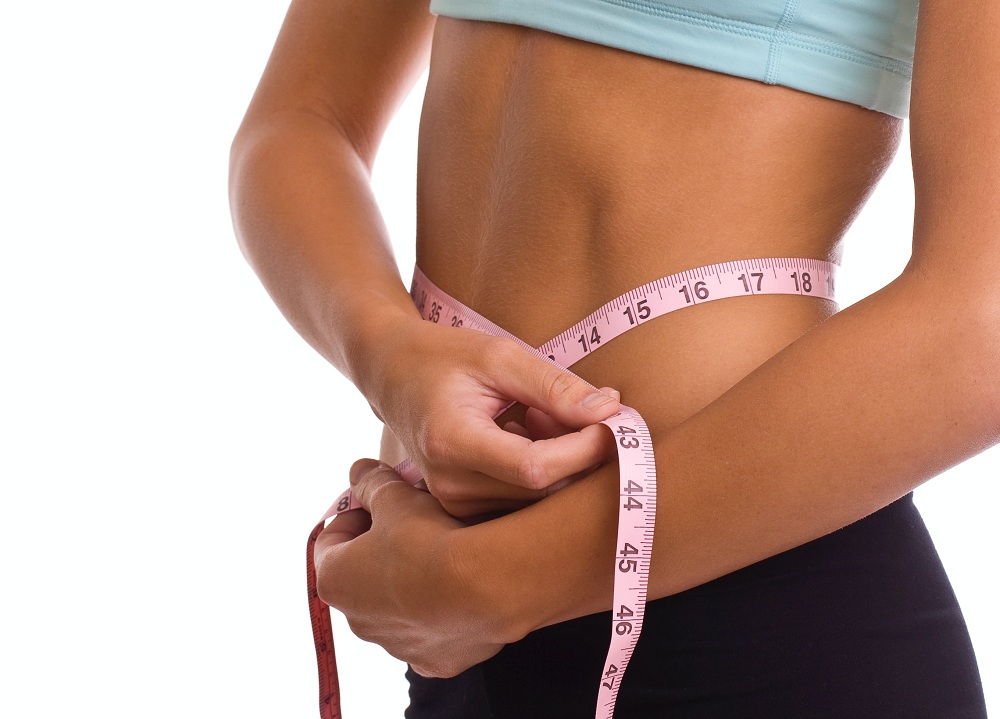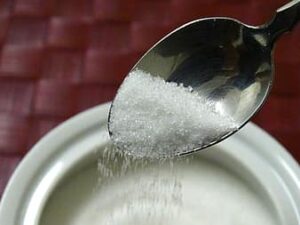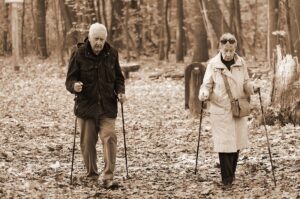Last updated on August 31, 2021
Photo by Bill Oxford on Unsplash
Those trying to lose weight hope to find one magical and action that they can perform to lose weight instantly or quickly. Unfortunately, that’s not how it works. There are so many variances that can affect both weight gain and weight loss that there is no magic pill we can take to make all that fat go away. Advertisements constantly barrage us with super drugs that promote dropping pounds rapidly, but if you read the fine print, you’ll see that the people who lost weight didn’t just take the pill. There were other factors as well.
Diet
Diet has a lot to do with our weight and our overall health. If you want to change something, diet is more than likely the best place to start. Some nutritionists say that weight loss and health begin in the kitchen. They’re not wrong. One cannot exercise several hours a week and then go into the kitchen and fill up eating cheesecake and drinking soda. That defeats the purpose of the exercise. This certainly doesn’t mean you can’t have your favorite treats once in a while; it just means that you need to be deliberate in what you choose to eat.
The first thing you want to do is examine your diet and answer these questions: Do I eat at regular times? How many times a day do I eat? What are my most common food choices? Once you have the answers to those questions, you can make other decisions.
If you don’t eat meals at regular times, you should change that. Eating should be routine. Your body will get to know that routine and will be able to function better. Eating meals at consistent times each day helps improve digestion and helps to eliminate bloating. Better digestion helps keep your body healthier, which in turn improves your overall health and well-being. Random eating throughout the day can lead to diabetes, high blood pressure, and obesity. Set up a mealtime schedule that works for you and sticks with it.
Next, look at your food choices. Do you grab junk food to eat on the run because you’ve had no set times to eat? The best way to prevent overeating of a lot of junk food is not to buy it. Don’t have it handy in your pantry. Instead, stock up on healthy snacks for those busy mornings and mid-afternoon cravings. For example, buy salted nuts instead of chips for when you want that crunchy, salty fix. Keep a variety of fruit on hand for something sweet. Eliminating any fried or processed food from your diet is a massive step towards improving your well-being and overall health.
Planning your meals for the week before you go to the grocery store can also help with food choices. When you create a meal plan, you know what you need to prepare the meals you’ve chosen, and it helps to stop those impulse purchases that are often not the healthiest.
Will you feel a change in your health and lose weight by changing your diet? It’s possible. Diet is that important.
Exercise
Some people are fanatics about exercise, running up to ten miles or more per day. Some spend hours at the gym trying to tone and shape their body or working out to lose weight. Unfortunately, some people find that exercising doesn’t always work when it comes to losing weight. That’s because there are issues outside of the gym that are detrimental to weight loss. Should you exercise? Absolutely!
Exercise sounds like a scary, perhaps even tedious, word. Exercising can be monotonous. But keep in mind that exercise is simply movement. The more you move, the more exercise you get. If you are one of those people who don’t like to exercise, find ways to incorporate it into your life by doing some extra work or playing a little harder. Have some yard work that looks difficult that you’ve been putting off? Get on it! Sweat a little and use those muscles. Bend over. When the yard work is done, you’ve killed two birds with one stone.
Playing hard can be an excellent and fun exercise. Unfortunately, not everyone has the time or the financial resources to go to the gym, but that doesn’t mean you can’t find time to get in some extra movement. Have small children? Run around the house playing tag or hide and seek. Involve them in your exercise routine by doing jumping jacks or taking a walk together. The important thing is to do something.
Will you feel a change in your health and lose weight by incorporating more deliberate movement into your day? It’s possible. Exercise is that important.
Sleep
Sleep is no less critical to a person’s overall health and weight loss than diet and exercise. When we’re tired, we tend to eat easy-to-grab food that’s not always the healthiest choice. On the way to work, some people might go through a coffee shop drive-thru and get the largest, fanciest coffee they can. Take a look at the calorie count on some of those! It’s astounding! Some can be more calories than a person should consume in an entire day.
When we don’t get enough sleep, we don’t feel that we have enough energy to exercise, so we don’t. After a long, tiring day at work, as we’re bypassing the gym, we head straight to another drive-thru for a take-out dinner. Again, take a look at the calorie count on those. We end up eating enough to make us feel lethargic. We sit on the couch the rest of the evening binge-watching our favorite series on TV and fall asleep right there.
People who sleep less tend to eat more. They snack more and eat larger, primarily unhealthy, meals. A sleep-deprived person craves carbs. Do you know what carbs do? They make you gain weight, especially if you eat and then sit around afterward. Carbs need to be burned. If we aren’t burning them off because we’re too tired, then they tend to sit there on our guts for all the world to see. The body turns all our unused sugar and carbohydrates into fat. Fat is the body’s way of storing energy for future use. So it would be best if you burned your energy before it is stored on your hips and thighs.
How much sleep should you get? This varies a little from person to person, but a good target is to get seven to eight hours of sleep per night. A lack of sleep lowers the metabolism, which is the body’s way of burning calories. A lack of sleep itself won’t cause you to gain weight, but a slow metabolism will result in weight gain. Lack of sleep can also cause a problem with natural insulin production. Insulin is how the body processes the sugars we eat, including carbs. When the body can’t process insulin correctly, it stores those sugars as fat.
Like with food, you need to create an environment conducive to a good night’s sleep. An hour before going to bed, turn off all screens and relax. Try reading a book or taking a warm bath to help with that. If you get into bed already relaxed, then it is easier to fall asleep. Also, just like with meals, create a routine and stick with it. It will help if you do the same things before you go to sleep at night and do them at the same time. Your body will acclimate to the routine and will know when it’s time to shut down and will automatically prepare.
Try not to eat a large meal or heavy snack late at night. Allow enough time for your body to digest the food, so you don’t lay down with a stomach full of heavy food and feeling bloated. If you do, this could cause indigestion, and that will keep you awake as well.
Will you feel a change in your health and lose weight by changing your sleep habits? It’s possible. Sleep is that important.
By developing a good diet, exercise, and sleep routines, you can lose weight and feel better. However, it’s not a one-week and done thing. All three of these steps work together, especially when they become a habit. You cannot just get more exercise OR eat better OR get more sleep. All three of these things are equally important when it comes to your overall health and well-being. You must change lifelong habits in all areas of your life if you want to see a difference. Be honest with yourself in what you’re doing. Don’t underestimate your calorie intake. Don’t overestimate how much time you spend doing productive exercise. Get that heart rate up and sweat a little. Set long-term goals as well as easier to reach short-term goals. The shorter goals will keep you motivated to treat your body better as you see progress. As with anything that has to do with your health, consult your doctor to see what programs are available and what might work best for you.
Disclaimer: The author of this article is not a medical professional, and the information here should not be construed as medical advice.
References
Why Eating on a Schedule May Improve Your Digestion. Kerry Tidwwell. https://www.stopcoloncancernow.com/buttseriously/healthy-living-tips/why-eating-on-a-schedule-may-improve-your-digestion.
Benefits of Eating at the Same Time Everyday. Jodie (September 2, 2019). https://www.simpleminded.life/eating-at-the-same-time/.
Diet vs. Exercise: The Truth About Weight Loss. Alia Hoyt. https://www.webmd.com/diet/features/diet-vs-exercise-the-truth-about-weight-loss#2.
Diet and exercise Mayo Clinic Staff. (October 10, 2019). https://www.mayoclinic.org/healthy-lifestyle/weight-loss/basics/diet-and-exercise/hlv-20049483.
Sleep More, Weigh Less. Reviewed by Nayana Ambardekar, MD. (July 18, 2020). https://www.webmd.com/diet/sleep-and-weight-loss#1.




















Be First to Comment